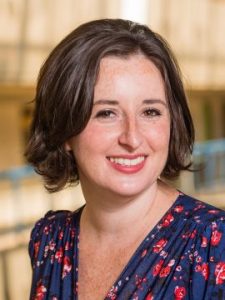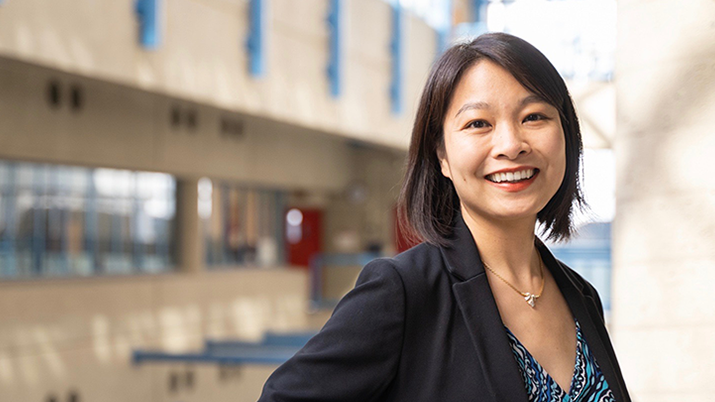

Lillian may
Lillian May, one of the new lecturers in the department of psychology, didn’t intend to become a full-time teacher. After teaching just one class, she has never looked back.
“Teaching is one of my great joys,” say May. “I love getting to know my amazing students, inspire them, and build on my own knowledge.”
Since 2009 May has held numerous teaching roles in the department including Teaching Assistant, Teaching Fellow, and Sessional Instructor positions. Now she adds Lecturer to the list. It was UBC’s world-class program in developmental psychology–along with the department’s strength in language development–that attracted her to UBC; much of her research focuses on language development in infancy.
May completed her PhD in Developmental Psychology at UBC in 2016 and prior to this she received her MA in Developmental Psychology at UBC and her BA in Psychology at Pomona College in Claremont, CA, USA.
In this Q&A, she shares her approach to teaching, her advice for students, and what she does when she’s not in the classroom (hint: chocolate is involved).
First of all, what attracted you to teaching?
I actually never intended to be a full time teacher—I took the opportunity to teach my first class as a way to check it out, to figure out if I wanted a future career that involved some teaching. But from that first class, I fell in love with teaching and I’ve never looked back. I like the hands-on aspects of working with my students, I like seeing the real-time feedback of my students’ learning, and I love getting to try new things every term. I also get to learn a ton every time I teach a class!
How would you describe your approach to teaching?
I really try to consider things from the point of view of my students: what material would be the best interesting/useful for them to learn, what do my students already know before coming into my class vs. what would be new, how would my students learn the material best. And then I go from there.
What can you learn from your students?
Oh goodness, I learn so much from my students! My students always bring me the coolest stuff from the news and the media that connects to topics we’re talking about in class—they keep me up to date with what’s going on in the world. They also know way more about technology than me (thanks for making me feel old, guys!). And I love getting to learn about new cultures, families, and ways of thinking from my students.
What learning or studying advice do you have for your students?
The most obvious: you have to study. It takes time and effort, and there are no shortcuts. Further, you have to study hard, and creatively, going beyond simply memorizing the textbook or lecture slides. Try to think of examples from your life that relate to the topics, try coming up with the questions you would ask if you were the person creating the exam. Try to take the material outside of the box, which will help you understand it on a deeper level.
But also, don’t stress about school too much. It’s only one small part of your life, and I promise you can still have a fantastic life if you get a B (or even an F!) in a class. Other things—family, your mental health, your physical health—matter more than grades in school.
What are your research interests?
Most of my research has focused on language development in infancy. In my Ph.D. work I was interested in how young infants perceive and process their own native language versus unfamiliar non-native languages, and how this changes across the first few years of life.
Why did you choose UBC for your graduate studies?
UBC has a world-class program in Developmental Psychology (my area of interest), and particular strength in language development. I also knew that I wanted to live in a city, and Vancouver fit that bill.
And what has attracted you to stay at UBC?
It’s hard to leave Vancouver! It’s an amazing city, and I’ve been lucky to build an amazing life here. I also really like teaching the students at UBC—they come from such diverse backgrounds, with diverse experiences, and are truly able to enrich my classes.
Do you have a motto or favourite quote?
Uhhh, no.
What do you like to do in your free time?
I love to cook, and bake. I make amazing cakes and brownies. I love to spend time outside—whether that’s just in my backyard, or going camping in the woods or by a lake. I also spend a lot of time reading (I probably go through at least one book a week), hanging out with friends, or just relaxing with my husband.


